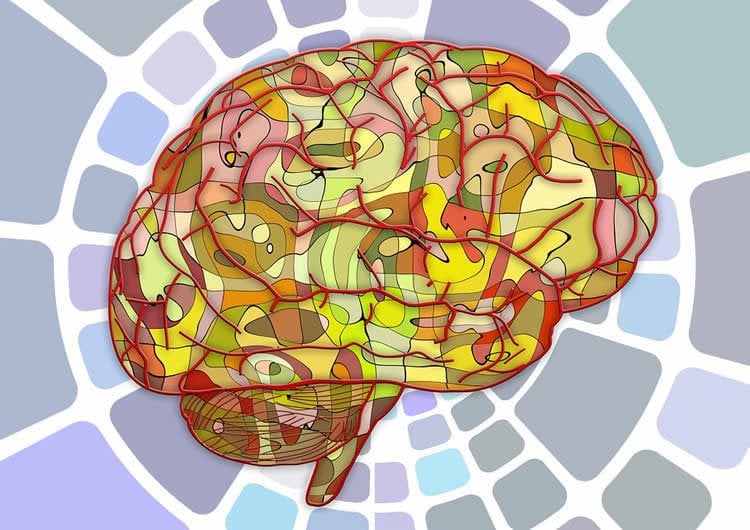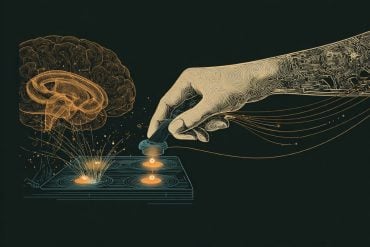Summary: A new study reports Parkinson’s patients who take dopamine agonists are more likely to develop impulse control disorders.
Source: AAN.
Over time, half of the people taking certain drugs for Parkinson’s disease may develop impulse control disorders such as compulsive gambling, shopping or eating, according to a study published in the June 20, 2018, online issue of Neurology.
In Parkinson’s, a vital chemical in the brain called dopamine that regulates movement is gradually reduced. Parkinson’s is treated with levodopa, which converts to dopamine in the brain, or with dopamine agonists, which work by activating dopamine receptors.
“Our study suggests that impulse control disorders are even more common than we thought in people who take dopamine agonists,” said study author Jean-Christophe Corvol, MD, of the ICM Brain and Spine Institute–Pitié-Salpêtrière Hospital, Assistance Publique–Hôpitaux de Paris, Sorbonne University in Paris, France. “These disorders can lead to serious financial, legal and social and psychological problems.”
The study involved 411 people who had been diagnosed with Parkinson’s disease for five years or less who were followed for an average of about three years. The participants were asked in interviews about impulse control disorders such as compulsive shopping, eating, gambling or sexual behaviors.
About 87 percent of the participants had taken a dopamine agonist at least once. At the beginning of the study, 20 percent of the participants had an impulse control disorder, with 11 percent having compulsive or binge eating problems, 9 percent compulsive sexual behaviors, 5 percent compulsive shopping and 4 percent compulsive gambling. Six percent of people had more than one impulse control disorder.
Of the 306 people who did not have impulse control disorders at the start of the study, 94 people developed a disorder during the study, for an overall five-year cumulative incidence of 46 percent. For people who had never taken dopamine agonists the five-year incidence was 12 percent, compared to 52 percent for those who had ever used the drugs. The average annual incidence was 26 per 1,000 person-years in people who never took the drugs, compared to 119 per 1,000 person-years in those who had taken the drugs.
“These disorders can be challenging for neurologists to discover,” said Laura S. Boylan, MD, of New York University in New York, NY, and a Fellow of the American Academy of Neurology, who wrote an editorial accompanying the article. “People might be ashamed to tell their doctor about their problems, they may think these issues are not related to their Parkinson’s disease, or they may not even consider the disorders a problem. Plus, as doctors’ time for meeting with each patient gets shorter and shorter, bringing up sensitive issues gets harder and harder.”
The researchers also found that with higher doses of the drugs and taking them for longer periods of time, people were more likely to develop impulse control disorders. The drugs pramipexole and ropinirole were associated with the highest risk of developing the disorders.

A total of 30 people with impulse control disorders who stopped taking dopamine agonists were followed during the study. The disorders stopped over time, with half of the people no longer having issues after a year.
One limitation of the study was that because the participants were relatively young, with an average age of 62, and younger people are more likely to be given dopamine agonists and to have impulse control disorders, it’s possible that the occurrence rate of these disorders could be overestimated.
Funding: The study was funded by the French Ministry of Health and the French Drug Agency.
Source: Renee Tessman – AAN
Publisher: Organized by NeuroscienceNews.com.
Image Source: NeuroscienceNews.com image is in the public domain.
Original Research: Abstract for “Don’t ask, don’t tell: Impulse control disorders in PD” by Laura S. Boylan, and Vladimir S. Kostić in Neurology. Published June 20 2018
doi:10.1212/WNL.0000000000005806
[cbtabs][cbtab title=”MLA”]AAN “Half of Those on Parkinson’s Drugs Develop Impulse Control Problems.” NeuroscienceNews. NeuroscienceNews, 20 June 2018.
<https://neurosciencenews.com/levodopa-impulse-control-9398/>.[/cbtab][cbtab title=”APA”]AAN (2018, June 20). Half of Those on Parkinson’s Drugs Develop Impulse Control Problems. NeuroscienceNews. Retrieved June 20, 2018 from https://neurosciencenews.com/levodopa-impulse-control-9398/[/cbtab][cbtab title=”Chicago”]AAN “Half of Those on Parkinson’s Drugs Develop Impulse Control Problems.” https://neurosciencenews.com/levodopa-impulse-control-9398/ (accessed June 20, 2018).[/cbtab][/cbtabs]
Abstract
Don’t ask, don’t tell: Impulse control disorders in PD
Neurologists treating and studying movement disorders naturally focus on movements. This is perhaps even more evident among movement disorder neurologists, who have a tradition of studying phenomenology, pathology, and, more recently, genetics. Nonetheless, nonmotor features of movement disorders have long been recognized, and research on these is a fast growing area.







